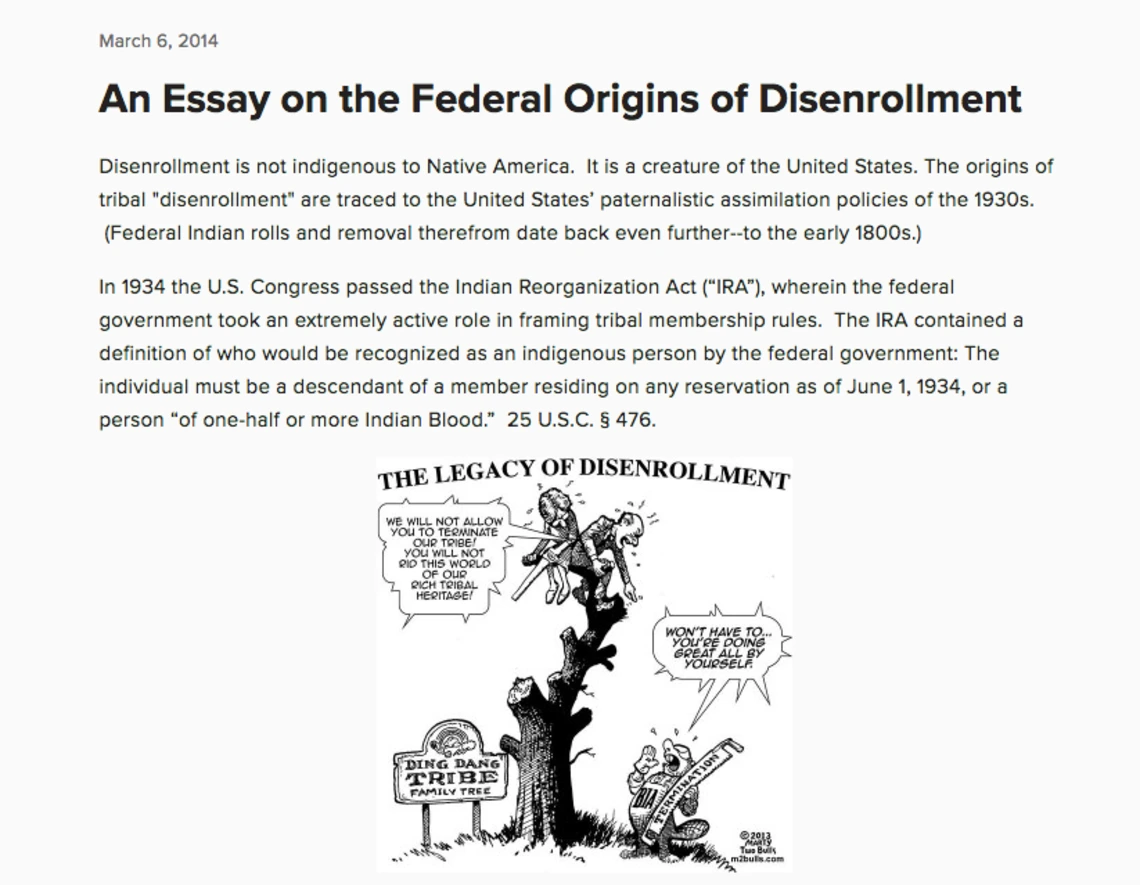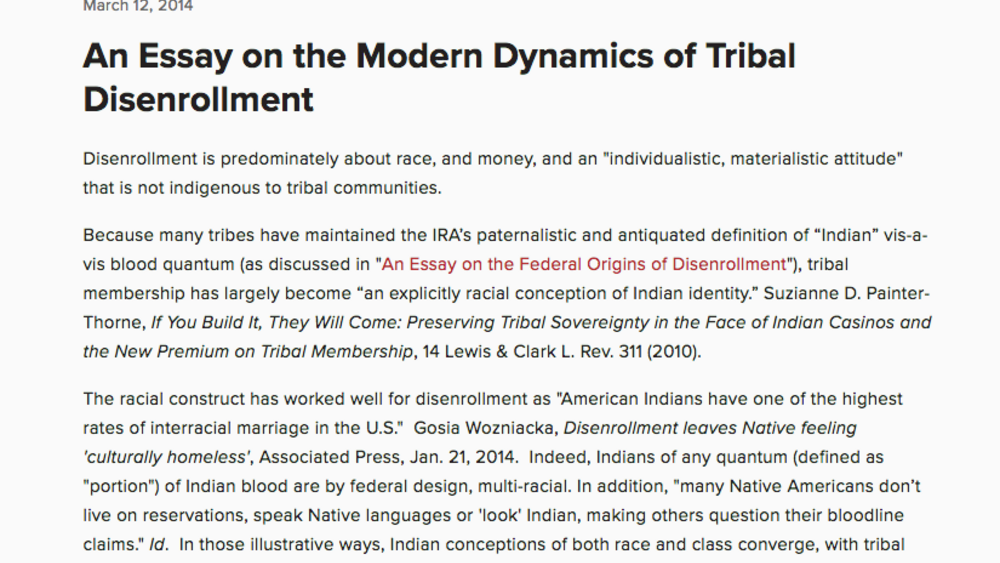Disenrollment is not indigenous to Native America. It is a creature of the United States.
The origins of disenrollment are traced to the United States’ paternalistic assimilation policies of the 1930s. In 1934 the U.S. Congress passed the Indian Reorganization Act (“IRA”), wherein the federal government took an extremely active role in framing tribal membership rules. The IRA contained a definition of who would be recognized as an indigenous person by the federal government: The individual must be a descendant of a member residing on any reservation as of June 1, 1934, or a person “of one-half or more Indian Blood.” 25 U.S.C. § 476...
Additional Information
Galanda, Gabe. An Essay on the Federal Origins of Disenrollment. Galanda Broadman. Seattle, Washington. March 6, 2014. Opinion. (http://www.galandabroadman.com/blog/2014/03/an-essay-on-the-federal..., accessed March 1, 2023)



